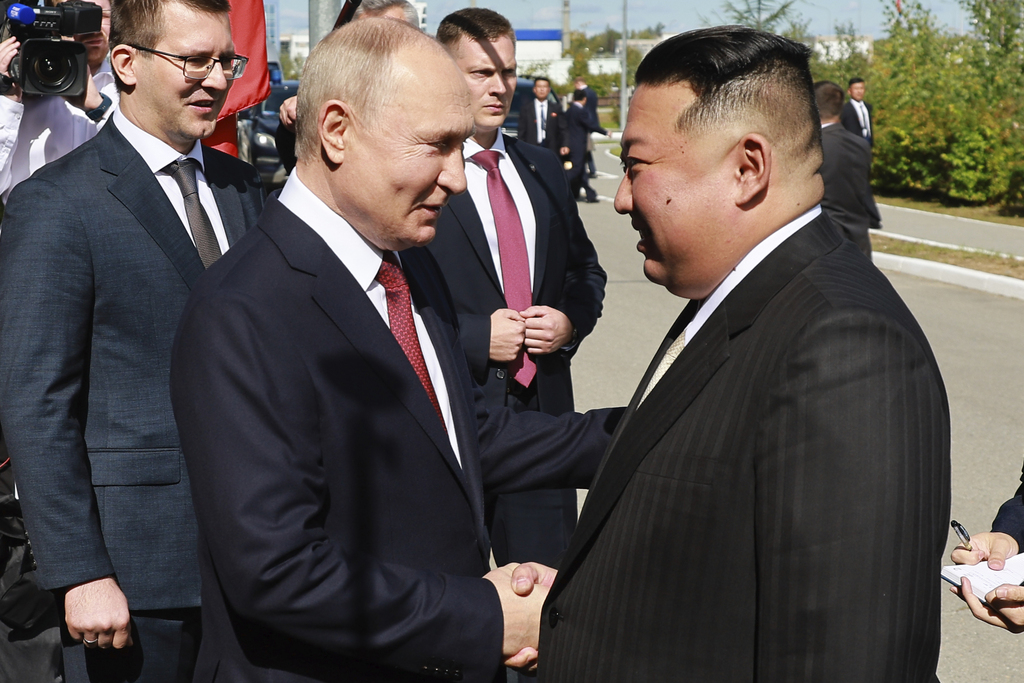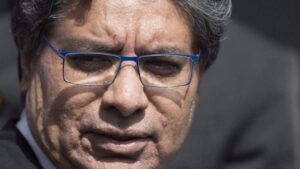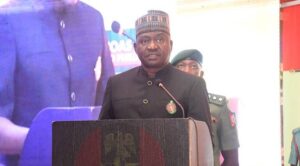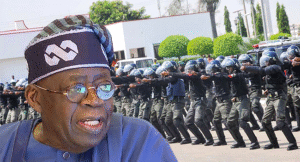
North Korea fired two ballistic missiles just hours before its leader Kim Jong-un was expected to meet Vladimir Putin for one-to-one talks in Russia.
The missile launch comes as Mr Kim arrived in Russia’s Vostochny Cosmodrome on Wednesday for the first time in almost four years in his heavily armoured private train to meet Mr Putin – a rare meeting that is being closely watched amid international concerns about a potential arms deal and their partnership against the West.
The two missiles were launched 10 minutes apart from the Sunan area of capital Pyongyang’s international airport towards the country’s eastern seas, South Korea’s joint chief of staff said.
Both missiles fell outside Japan’s exclusive economic zone (EEZ), Japan’s chief cabinet secretary Hirokazu Matsuno said.
South Korean military did not immediately confirm the details of the missile launch, including how far it flew. Japan’s Coast Guard said the missiles had already landed but still urged vessels to watch for falling objects.
Meeting the North Korean dictator on Wednesday, Mr Putin declared his support for developing controversial reconnaissance satellites following Pyongyang’s multiple failed attempts to put its first military spy satellite into orbit.
On Wednesday, Mr Putin received Mr Kim at Russia’s most modern space rocket launch site and said he was “very glad to see” him while Mr Kim thanked him for the invitation to visit him “despite being busy”, according to the Russian state media.
I am glad to see you,” Mr Putin said as he shook Mr Kim‘s hand for around 40 seconds. “This is our new cosmodrome.”
Mr Kim stepped out of his limousine which was brought in his train from Pyongyang after his first stop at the Khasan, at Russia and North Korea’s border on early Tuesday. He walked the red carpet and received a welcome from the military honour guard and a brass band.
It is not known how the North Korean leader commands and controls his country’s missile and nuclear forces while abroad. However, analysts have said recent drills have revealed a system for overseeing nuclear weapons similar to those used in the United States and Russia.
The meeting between the two leaders is widely seen as Russia’s opportunity to refill its dwindling ammunition stores from the 18-month-long war in Ukraine.
In exchange, Mr Kim could seek Russia’s support to get around debilitating UN sanctions and shore up partnerships amid its diplomatic isolation.
He is also expected to seek economic aid and military technology – but arms deal would violate international sanctions that even Russia supported in the past.
Mr Putin showed his North Korean guests around Russia’s most modern space launch facility in Vostochny Cosmodrome and hailed their 75 years of diplomatic relations.
“We, of course, need to talk about questions of economic cooperation and questions of a humanitarian nature. We have a lot of questions. I want to say that I am very glad to see you. Thank you for accepting the invitation and coming to Russia,” the Russian leader said.
Responding to a reporter’s question about Russia’s space partnership to build the spy satellite, Mr Putin said: “That’s why we came here.
“The leader of the DPRK shows great interest in rocket engineering; they are also trying to develop space,” he said, referring to North Korea by its official name.
Mr Kim said that their meeting “will be the next step to take relations to a new level” and said he will support Russia in its fight against “hegemonic forces” – a general reference to the US.
“Russia has risen to a sacred fight to protect its sovereignty and security… against the hegemonic forces,” Mr Kim told Putin via a translator.
“We will always support the decisions of president Putin and the Russian leadership… and we will be together in the fight against imperialism.”
Mr Kim’s delegation is said to include his foreign minister, his top two military officials, and a number of people with connections to the country’s weapons industry, as well as representatives of the country’s space and technology sectors.
Before his tour, Mr Kim said the visit showed North Korea is “prioritising the strategic importance” of its relations with Moscow, official news agency KCNA said.
In its last missile test on 31 August, North Korea fired two short-range ballistic missiles, calling it a warning against America’s deployment of strategic bombers in the region.
The missiles were fired at around midnight in a “tactical nuclear strike drill simulating scorched earth strikes at major command centres and operational airfields” in South Korea, North Korean army said, according to state media.
The army said that the “drill is aimed to send a clear message to the enemies” who “challenge us with such military threats as the deployment of strategic nuclear assets despite our repeated warnings”.







